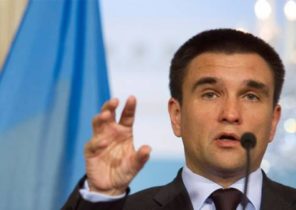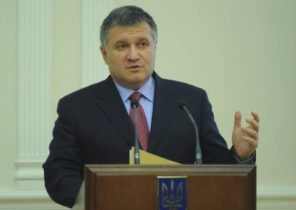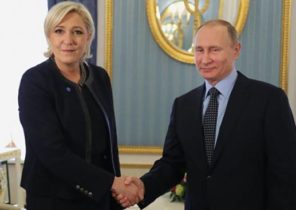After the oil spill, which has turned into an environmental catastrophe at the end of may in Norilsk, in some parts of Siberia as never before raging wildfires. The cause of both events was an unusual long rise in temperature in this region of the world. Scientists assume that the warming process will accelerate, but economists say that it will become a serious problem for Russia. UN warns of global consequences.
From January to June the temperature in Siberia was five degrees Celsius above average, and in June in some areas it was even higher at 10 degrees.
Such a prolonged heat leads not only to the numerous forest fires, but also to further melting of permafrost, i.e. permanently frozen layer of rocks. And it can cause damage to infrastructure. Northern Siberia is not a very populous region, but there are located the main Russian energy companies, which, according to recent studies, are to suffer most in the future.
“In the high latitudes warming faster than the global average because of the so-called polar amplification. There are various hypotheses of its origin, ranging from the usual randomness, which is unlikely, and ending with the action of the various circuits of the feedback, first of all, the influence of melting ice in the Arctic. As a result, the warming in Russia is approximately two times faster than the world average,” explains lead researcher of the Institute of atmospheric physics of the Russian Academy of Sciences Alexander Chernokulskiy.
Scientists assume that the warming process will accelerate, but economists say that it will become a serious problem for Russia
The Director of the program “Climate and energy” WWF Russia Alexei Kokorin said on the phone that “against the background of warming in the Arctic is an exchange of air masses as one moves from North to South and from South to North. The penetration of air from the South in the district of Yakutia — this is the phenomenon we are seeing now in Siberia. It had happened before, but now happens more often and stronger.”
In addition, the United Nations through the world Meteorological Organization, reacted to this situation. “Temperatures in the Arctic rising two times faster than the average for the planet, which has an impact on the lives of people and ecosystems, and leads to global consequences”, — said Friday the Secretary General of the Finn petteri Taalas (Petteri Taalas). As noted in Geneva, the WMO representative Claire Nullis (Clare Nullis), occurring in Siberia, “really unprecedented.” “There is hotter than in many parts of Florida and California,” said Claire Nullis. In addition, Claire Nullis stressed that the rapid decrease of the ice cover is observed along the Arctic coast of Russia.
Such a jump in temperature occurred in the Yakut city of Verkhoyansk, where the 20th of June was fixed “unthinkable” 38 degrees. We are talking about significant figures, as Verkhoyansk is located to the North of the Arctic circle and in winter the temperature there can reach 50 degrees below zero. This is the only place in the world where colder than Antarctica. Once in the Verkhoyansk has recorded a temperature of 67.8 degrees below zero.
“There is a tendency to increase the temperature of the planet. Every time these surges will become more common. For example, in 2010, this jump is recorded in the European part of Russia”, — said the head of the Greenpeace climate project Vasily Yablokov, referring to the year when the image of Moscow in the smoke become symbolic.
“A direct consequence of the increasing number of hot months, resulting in catastrophic fires,” said Vasily Yablokov. According to experts, with Jun their was at least three times more. Most affected are the Republic of Sakha (or Yakutia) Republic, Krasnoyarsk Krai, Irkutsk and Amur region.
On July 22 the air Service of forest protection has recorded 131 active forest fire. Firefighters were engaged in extinguishing forest fires 82. The remaining fires were in very remote areas.
Faster
Warming in the Arctic and in Russia is two times faster than the rest of the world
“This year, a wave of fire has moved further North than in previous years. Covers the edge of the Arctic circle”, — says Alexey Kokorin. “It is a strange phenomenon which we observed even in the new national Park Kytalyk, located North of Yakutia, where tundra and moss”. On the basis of satellite imagery the representatives of the world Meteorological Organization said on Friday that now border the “most Northern” of the fires is less than eight kilometers from the Arctic ocean.
This year in the taiga the largest number of fires, 300, was recorded on 8 July. According to the Russian forestry Agency, last Monday burned 1.62 million hectares.
As said Vasily Yablokov, the Russian government has not made enough efforts to prevent these disasters. “We have known about the existence of global warming. What should I do? First, we need to adapt to climate change, because we already know that year after year the situation with wildfires is worsening. First and foremost, the government should increase funding for forest protection, as well as the number of machines and personnel,” — said the expert in an interview with Vanguardia.
In a recent international scientific study, Meteorological service of great Britain conducted a computer simulation in which took the temperature, which was higher in C than in pre-industrial times, and came to the conclusion that without human influence these jumps would occur less than once every 80 thousand years.
However, scientists amazes is the that the current jump and lasts for so long. “Rather, it is an abnormal rise in temperature associated with global warming, because without it, the likelihood that the temperature would rise quite by accident, is negligible. It is strange that this anomaly lasts more than six months”, — said Alexander Chernokulskiy. However, in addition to fires, not less important, another consequence of these high temperatures, namely the melting of permafrost.
According to Alexei Kokorin, the greatest impact on permafrost can be expected in the next century. However, felt economic and environmental problems.
Verkhoyansk in the summer
The coldest point on Earth outside of Antarctica was recorded 38 degrees above zero
In fact, according to the official version of the cause of the leak of more than 20 thousand tons of fuel out of the Deposit “Norilsk Nickel”, the world’s largest producer of Nickel and palladium, not far from the Arctic city of Norilsk was the destruction of the supports due to the melting of permafrost.
“If warming continues at the same pace each time such accidents become more catastrophic,” — said the Deputy Director of the permafrost Institute imeni P. I. Melnikov, located in the capital of Yakutia, Yakutsk, Alexander Fedorov.
In a report published this week in the Russian financial newspaper “Vedomosti”, “Morgan Stanley” (Morgan Stanley) said that due to this process, Russian energy companies such as “Gazprom”, “NOVATEK” or the “ALROSA” will suffer economically. “Climate change in permafrost regions, which account for approximately 60% of the territory, leads to a decrease in the stability of the soil and the emergence of risks to infrastructure”, — the report says.
Russia is heavily dependent on resources located in the Arctic region, especially from oil and gas. According to “Morgan Stanley”, about 90% of the gas and diamonds, 30% of the oil and all stocks of palladium are mined in areas covered with a thin layer of permafrost. The report stated that Russia will soon be able to feel the effects of this process.
Melting permafrost is another obstacle to the global fight against climate change. “It melts only the surface part. But emissions of carbon dioxide and methane, a greenhouse gas, which accelerates the climate change that will ultimately affect not only the region but the entire planet,” explained Vasily Yablokov.
Russia is the fourth largest emitter of greenhouse gases after the US, India and China. Despite the fact that Moscow ratified the Paris climate Treaty from 2015, it is not necessary to reduce the emissions, since emission levels are still lower than in 1990, when in Soviet times the economy was heavily industrialized.
Polar bears, reindeer and endangered birds
Climate change, along with the disappearance of the polar ice caps, forest fires and melting of permafrost, has an impact on wildlife in Russia, especially in the Arctic. Environmental experts cite a few examples. “The disappearance of ice in spring in the Arctic occurs so quickly that the polar bears can’t understand what is happening. Those who are able to monitor the thawing process and remain on the edge, will always find their own food, seals and fish. However, the majority of bears are on the shore of the mainland. They can prey on young walruses and other animals. Although it is easier for them to approach human settlements to look for food in landfills, due to which they collide with people”, — says Alexey Kokorin. A very illustrative case occurred in February of 2019 on the New Earth, located between the Barents sea and the Kara sea in the Arctic, when a group of polar bears for months was in Belushya Lip, which aroused the concern of the 2,400 residents of the village.
“In terms of fires are more at risk it was the birds. They have changed not only the environment, but also sources of supply. For example, it becomes smaller fish. Because of these circumstances they are forced to migrate. Another more specific example is reindeer. This year due to the melting of the ice cover in the White sea, the Kola Peninsula became a natural and traditional stage in the annual process of migration”, — said Vasily Yablokov.







